Football as religion: Why Celtic vs Rangers is more than a game
For richer for poorer, for better or for worse, Rangers and Celtic are locked into a century-old marriage made in hell. But things might be looking up, reported Andy Dougan for the December 2001 FourFourTwo magazine
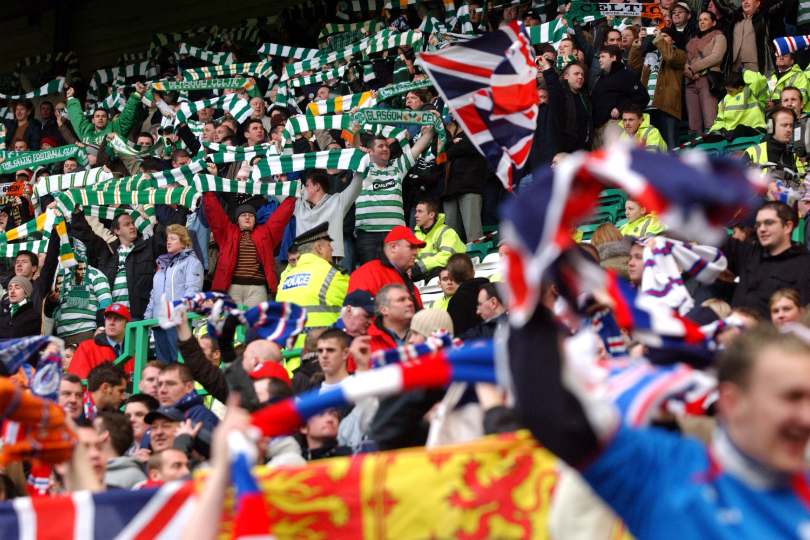
Paul Lambert and Stefan Klos are old friends. They’ve known each other for years. They won the Champions League together at Borussia Dortmund. So why are they wrestling on the rain-slicked turf like schoolboys?
Referee Kenny Clark, a Dumbarton solicitor who specialises in criminal cases, is caught up in a ruck of players tumbling around the six-yard box. Lorenzo Amoruso, freshly red-carded for a last-man challenge on Henrik Larsson, is meandering off the pitch. The thumb and forefinger of each hand circled round his eyes suggest that the great Lorenzo suspects Mr Clark might be related to Mr Magoo.
When the fracas ends, Lambert is yellow-carded, Klos saves Larsson’s penalty and the hostilities recommence broadly within a fairly liberal interpretation of the rules of association football.
Welcome to another weekend with the Old Firm.
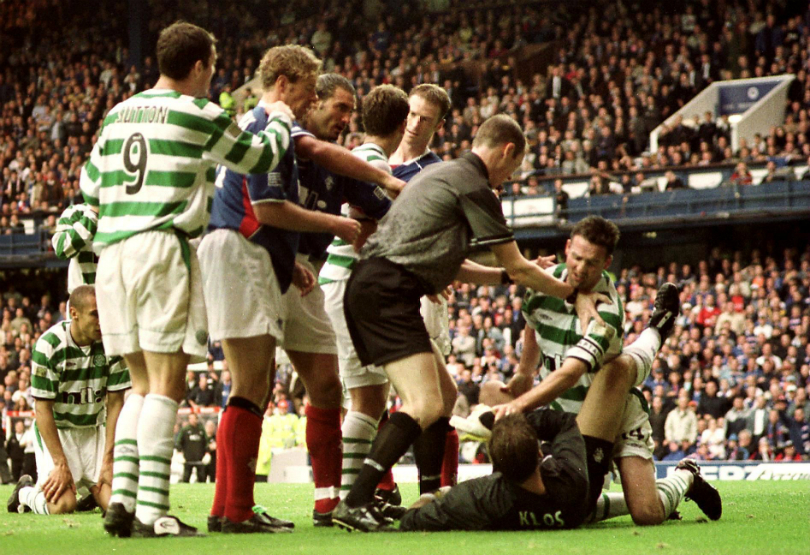
Sunday, September 30 2001. Ibrox Stadium, on the south side of Glasgow. Rangers 0 Celtic 2. One red card, five yellows, and a free-kick roughly every two minutes. Not to mention sundry incidents of appalling behaviour from both sides of the touchline.
A demented Celtic fan invokes the World Trade Center attacks by doing aeroplane impressions as Rangers’ American midfielder Claudio Reyna goes to take a corner
In the crowd a demented Celtic fan invokes the memory of the World Trade Center attacks by doing aeroplane impressions as Rangers’ American midfielder Claudio Reyna goes to take a corner.
On the touchline, two ice-bags come sailing onto the pitch from the Rangers bench as Alan Thompson scores Celtic’s injury-time second goal. The finger of suspicion points to Rangers skipper Barry Ferguson, who has been receiving treatment for a back spasm. The police are hovering with intent but Celtic boss Martin O’Neill makes light of the incident to defuse the situation.
The best features, fun and footballing quizzes, straight to your inbox every week.
This first fixture of the new season is quiet by the standards of Celtic vs Rangers, a gladiatorial contest proudly acclaimed by both sets of combatants as the greatest derby fixture in the world. After the match Paul Lambert describes his unseemly scuffle with his old friend as one of those things, down to passion and the heat of the moment. Passion is one of two words that come to mind when you talk to players about this fixture. The other is noise.
Elemental force
Like many players, Sandy Jardine, a Rangers and Scotland legend, had never seen a Rangers-Celtic match until he played in one. “It was at Ibrox in April 1967,” he remembers, “a game that had been postponed from New Year.
"Celtic were going on to play Inter Milan in the European Cup final and we were going to play Bayern Munich in the Cup Winners’ Cup final. We needed to win, whereas a point would have been enough to give Celtic the league.
"I scored one of the best goals of my career but we drew 2-2 and Celtic took the title. There was a tremendous downpour throughout the game and I think there was a crowd of about 90,000 that day.
The noise and the passion, there’s nothing like it. I have been fortunate to see derby games all over the world and there is nothing that comes close
“I remember everything about the game. The noise and the passion, there’s nothing like it. I have been fortunate to see derby games all over the world and there is nothing that comes close. When you go out of the tunnel you get hit by this level of noise which far outweighs normal games or even cup finals.
"You concentrate on your game and you don’t really hear anything specific. But when the ball goes out or someone’s getting treatment, your concentration breaks and you hear the noise. Obviously if there’s a goal, one end of the stadium goes berserk, the other goes silent.”
Henrik Larsson recalls being almost physically buffeted by the sound as it came roaring down the tunnel when he made his Old Firm debut. Passion and noise. For Tom Boyd, Celtic’s current club captain, the two are almost synonymous.
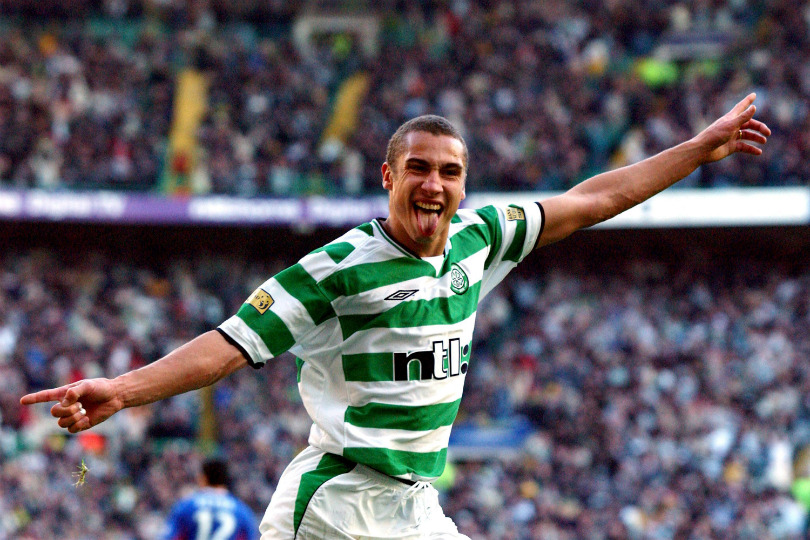
“The noise is what you take away from the fixture,” he says, looking back on more than 10 years facing Rangers in local derbies. “Afterwards in the dressing room your ears are still ringing; even when you go back on the coach they’re still buzzing. The difficult thing with that kind of noise is trying to communicate, trying to shout, or organise a defence.
"It’s much harder for defenders than attackers, especially in this day and age when you get a lot of people passing on strikers. If you’re going solid man-to-man then you just follow your guy everywhere, but if you have to pass on a player it’s really important that you do communicate.
"In that cauldron it can become almost impossible. You can try and work something out but it usually involves just shouting as loud as you can. After one of these games, your throat is raw."
Unknown origins; increasing violence
The rivalry between Scotland’s Old Firm - no one is quite certain of the origins of the collective nickname - is one of football’s longest-standing. But it wasn’t always so intense.
Watch the next Old Firm match as the teams come out of the tunnel. The cameraman hasn’t been drinking, that's the stadium shaking
Relations between the two clubs were very cordial at first. When Celtic Football and Athletic Club was set up in 1888 Rangers had already been in existence since 1872, although they had only recently moved to their new permanent home on the south side of the city.
Celtic had been established with the intention of raising money from the proceeds of their games to distribute to the poor and disadvantaged of the East End of Glasgow. On Monday, May 28, 1888 the first team they met in their first official match as a club was Rangers, attracting an almost unprecedented crowd of 2,000 spectators. Celtic won 5 -2.
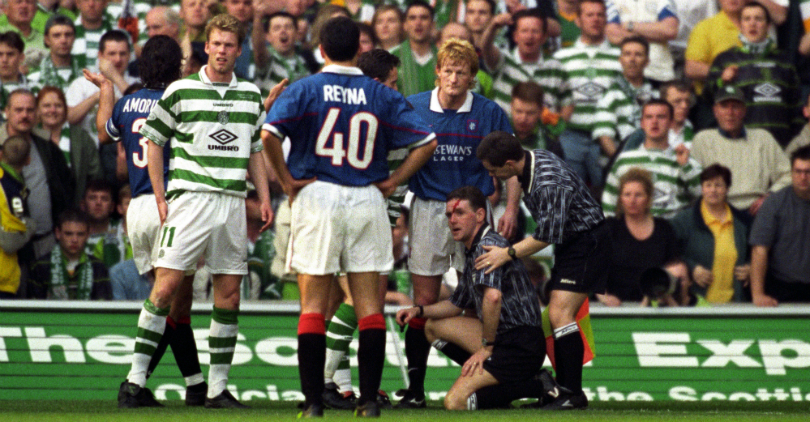
Up until the advent of all-seater stadia Celtic and Rangers continued to set attendance records, regularly attracting crowds verging on six figures. Today the crowds are smaller but still massive compared to most others in Britain.
Celtic Park holds 60,000 fans, Ibrox some 10,000 fewer. If you sit inside the dressing room at Celtic Park or Ibrox Stadium you can hear the atavistic roar of the crowd in waiting. Like Russell Crowe in Gladiator the players make their way down the tunnel into the daylight and a world of-ear splitting sound.
Watch the next Old Firm match as the teams come out of the tunnel. The cameraman hasn’t been drinking, that's the stadium shaking. Like the glass of water on the dashboard in Jurassic Park, the earth moves when these footballing tyrannosauruses come out to play.
It does nothing for the nerves, especially if you’re entering this maelstrom for the first time. There are football cliches about the crowd being a 12th man, but at an Old Firm game the crowd can break you.
The physio told me to go down the tunnel at about 10 to three to soak up the atmosphere so it didn’t hit me. It was good advice because as you come out, the place erupts and that can easily put you off
“This was in the days before teams went out onto the pitch to warm up,” says ex-Ranger Gordon Smith of his debut. “The physio told me to go down the tunnel at about 10 to three to soak up the atmosphere so it didn’t hit me.
"It was good advice because as you come out, the place erupts and that can easily put you off. You can imagine what it’s like with 70-odd thousand people there. It was always noisy anyway but when the two teams came out together it was just incredible.”
NEXT: The only game that matters
The only game that matters
It's not just the crowd on the day, it’s the build-up to an Old Firm match. Both Martin O'Neill and Dick Advocaat tirelessly preach the doctrine of each game as it comes. Try telling that to the fans.
You can tell them 'We still have to play so-and-so this week' but they’ll only say ‘Yeah, but a week on Saturday’s the big one'
"Two weeks before the game is when the fans start to go into Old Firm mode, and that usually starts the rush for tickets. Everybody’s on the phone. That never happened when I was with Dumbarton,” grins former Celtic midfielder Murdo McLeod. "You can tell them, We still have to play so and so this week, but they’ll only say, ‘Yeah, but a week on Saturday’s the big one'."
Neither McLeod nor Smith started their careers with the Old Firm. McLeod was a bright young prospect at Dumbarton while Smith, who turned down both Celtic and Rangers as a youngster, shone at Kilmarnock.
Right from the start, though, they knew they wanted to test themselves in the Old Firm fire. Everyone does. Even Kenny Clark would tell you that a Celtic-Rangers fixture is the ultimate test for referees. It’s the game everyone wants on their CV and no one likes to be found wanting.
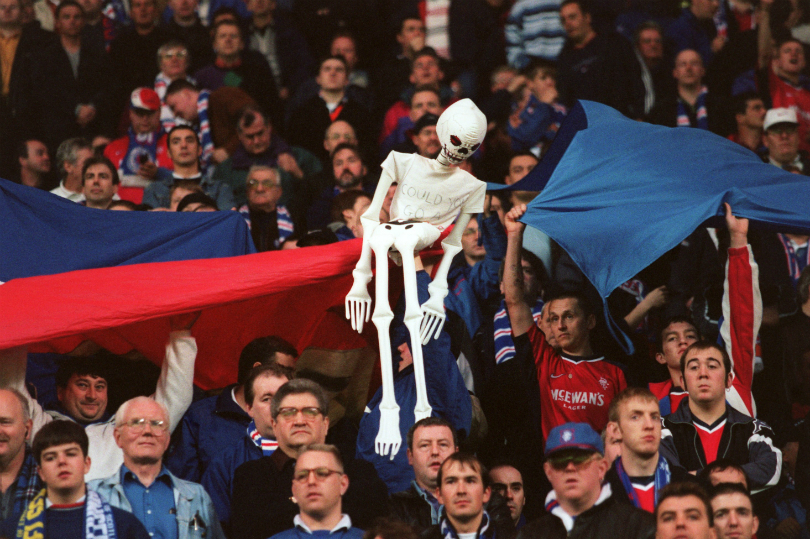
“You hear about how special the Old Firm game is,” says McLeod, “but you can’t really imagine what it will feel like till you play in your first one. That’s when you think, ‘Wow, so this is what it’s all about’.”
Scottish football is generally played with more pace than skill but Old Firm matches make most Scottish fixtures seem static. Thinking time is at a premium. This is football red in tooth and claw.
Traditionally the form book goes out the window but recently the result has become easier to calculate; generally the team which has the fewest men sent off will go on to win. It’s this sort of war of attrition which encourages the belief that there is very little good football played in Old Firm games.
You will see the 5-1 scores or the 6-2 thumbing, but these are simply the stuff of spectacle, seldom the product of dazzling skill. “Players do play a different game in an Old Firm match,” believes Gordon Smith. “They won’t take chances because of the possible consequences of a mistake.
If you do something clever in an Old Firm game you’ll get a fantastic reaction but if you make a mistake you’ll be hounded
"Every sense is operating at the maximum: you get players performing at maximum effort, maximum thinking and peak concentration, and sometimes the skill element is secondary. If you do something clever in an Old Firm game you’ll get a fantastic reaction but if you make a mistake you’ll be hounded.
“I played in about 17 games, but the more I played the less I looked forward to it. Rather than enjoying the opportunity to play in one of the world’s great footballing occasions, you began to realise more and more what was at stake.”
High stakes
As Tom Boyd points out, there is seldom nothing riding on the result. “Old Firm games tend to be six-pointers whereas with Aberdeen, for example, it would only be three. The intense rivalry makes it much worse.”
Boyd was a member of the Celtic side managed by Tommy Burns which couldn’t buy a league victory against Rangers. The longest-serving member of the side went seven years without a win at lbrox. This was in the days when Burns suggested his gravestone would bear the legend ‘Andy Goram broke my heart’.
“There were a lot of times when we should have come away with the win but didn’t,” says Boyd. “Luck went against us or we made a bad mistake and Rangers had important players who just pounced on that. At that time we went through a huge number of games where we dominated but just didn’t take our chances.
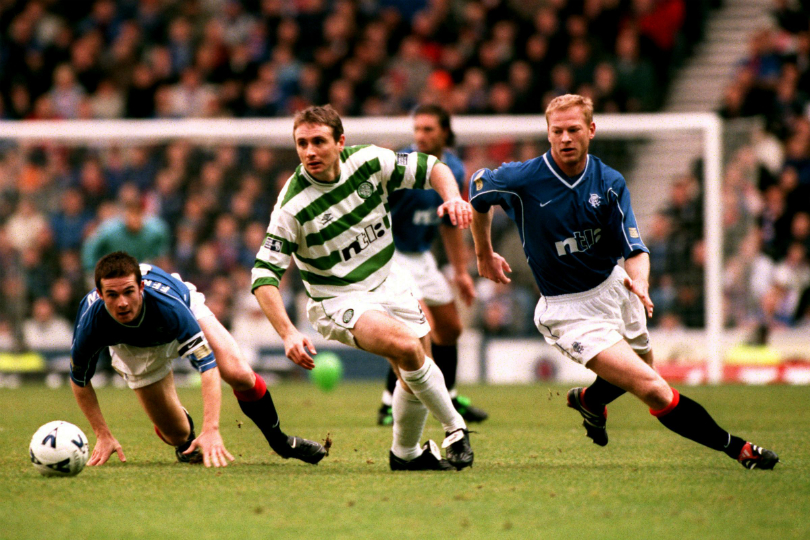
I know it sounds strange but the fans don’t mind you losing if you lose the right way
“I know it sounds strange but the fans don’t mind you losing if you lose the right way. You’re expected to compete and give effort and if you do that they’ll forgive you, especially if you’ve been a bit unlucky. They won’t be happy but it’s more acceptable than if you’ve had a really bad performance. I’ve played in a couple where we’ve been rank rotten and you want to go home and hide.”
The lost corner of defeat
In an Old Firm match, to borrow from American football coaching legend Vince Lombardi, winning isn’t everything: it’s the only thing
It was former Rangers idol Ally McCoist who famously said that the saddest sound in the world was sitting in the losing dressing room after an Old Firm game listening to the other team singing. In an Old Firm match, to borrow a phrase from American football coaching legend Vince Lombardi, winning isn’t everything: it’s the only thing.
“I’ve experienced the highs and the lows,” says Gordon Smith. “I was in the Rangers team that lost on the last day of the season in 1979. We only needed a draw to win the league and they won the title that day.
"It was a double blow because we had the Scottish Cup coming up and we were going to go for the treble for two years in a row. To lose it at Celtic Park, to sit in the dressing room and hear their celebrations, was the worst feeling. Then you suffer the consequences all summer because every Celtic fan reminds you of it and every Rangers fan does too.
“I also had the privilege of scoring the winning goal in a cup final against Celtic. That was my first cup final - the League Cup final of ’78 and I scored the winner with a last-minute goal, so you can imagine the elation. Beating Celtic you know your punters are going to be delighted and your team-mates are going to be delighted. It is such a big game.”
The feeling is more acute when you lose. In their heart of hearts there isn’t a lot of gloating among the winning players they know what their rivals are going through. As Sandy Jardine says, sooner or later you realise it’s a question of 'There but for the grace of God'.
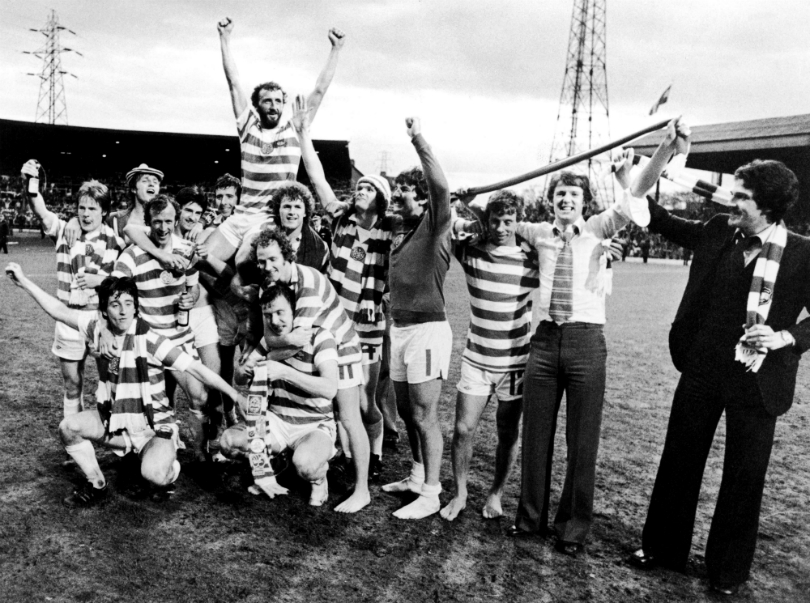
Religion and crime
In their early days whatever set Celtic and Rangers apart was confined to the pitch; off-the-field relations between the two clubs were very close. One of the first Celtic players to receive a benefit was Sandy McMahon and it was Rangers who provided the opposition in September 1899. After the game the Celtic boardroom rang to the rafters with mutual congratulations from both sets of officials.
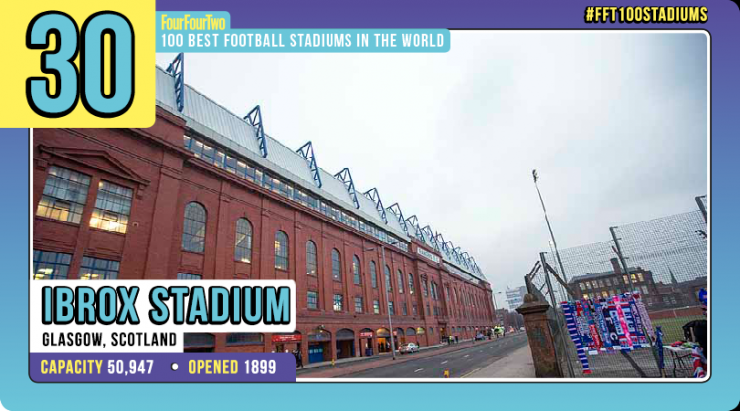
For the fans, rivalry turned to enmity in the 1920s and ’30s. The Catholic population of Glasgow, largely Irish and disadvantaged, were victims of constant discrimination. The 1918 Education Act enshrined in law the right of Catholic schools to be funded and run by local authorities, creating considerable ill-feeling among Scotland’s Protestant establishment.
Political animosity was crystallised in footballing rivalry, Celtic honouring their Irish Catholic origins while Rangers became ever more entrenched in Presbyterianism. This ultimately led to an Ibrox policy, never publicly stated but an open secret in Scottish football: Rangers would not sign a Catholic. Celtic had no such qualms and fans will gleefully point out that Jock Stein, the club’s most successful manager, was a Protestant.
The city’s problems became so acute that in the 1930s chief constable Percy Sillitoe threatened to ban the Old Firm fixture altogether to reduce the crime rate
Glasgow’s street gangs also flourished at that time and they too divided themselves along sectarian lines. The city’s problems became so acute that in the 1930s chief constable Percy Sillitoe threatened to ban the Old Firm fixture altogether to reduce the crime rate.
The spectre of crowd violence still hangs over Old Firm fixtures although since the introduction 20 years ago of legislation banning bottles, cans and alcohol in Scottish grounds the problem is nowhere near as bad.
These days the crime count in the crowd at least goes largely unreported. The stigma of sectarianism is not so easily washed away.
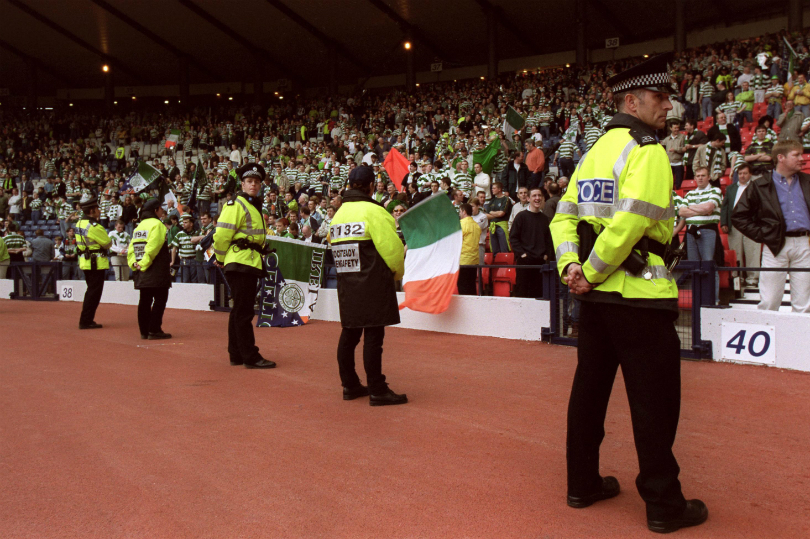
There are no neutrals at Old Firm matches. On one side thousands sing The Sash and other Loyalist anthems, while on the other thousands sing The Boys Of The Old Brigade and eulogies to Irish Republicans.
Even the most innocuous of songs can be turned into a torrent of abuse by an Old Firm crowd. Rangers recently ditched their entrance anthem Simply The Best because their fans had corrupted the lyrics with references to the Pope and the IRA.
Neither side, however, has gone beyond broad statements of condemnation. No one has yet lost their season ticket at either ground for singing sectarian songs.
NEXT: Unacceptable or necessary catharsis?
Nil by Mouth
Six years ago a young man named Mark Scott was making his way home from Celtic Park when he was attacked by Jason Campbell and stabbed with such ferocity that his throat was cut through to the spine. His only offence had been to wear a Celtic shirt.
Two years ago Mark’s friend Cara Henderson, now 21, set up Nil By Mouth, a campaign to highlight and combat sectarianism. A slight but fiercely determined young woman, Cara Henderson’s aims were simple.
We wanted people to come to regard sectarianism in a similar light to racism: open expressions of it would no longer be socially acceptable
“Nil by Mouth was designed to question the fact that Scottish society seemed to tolerate sectarianism and accept it as just part of the culture in the west of Scotland,” she explains. “Ultimately we wanted people to come to regard sectarianism in a similar light to racism to the extent that open expressions of it would no longer be socially acceptable.
"And we wanted to highlight the fact that people were being murdered as a consequence direct or indirect of sectarianism. We wanted to get people talking about sectarianism, to see the worst aspects of it, and to question their own actions and language that might perpetuate the problem.
"We wanted both Celtic and Rangers to jointly denounce sectarianism and to openly challenge and do away with the sectarian element of their support. And we wanted the political institutions and figures in Scotland to acknowledge that there was a sectarian problem and then to devise measures to address it.”
The very fact that Cara Henderson chose to raise the issues made her in some quarters the Devil Incarnate. At her first, and last, Old Firm game she was reviled in the foulest terms from those sitting around her in the stand. Afterwards she compared the experience with looking into a cesspit of all that was bad about Scotland.

Necessary catharsis?
Yet the average Old Firm fan would deny that he or she is a bigot. Their argument goes that they are simply songs. Cara Henderson would suggest that the singing of these songs creates an atmosphere which and motivate people like Jason Campbell with Mark Scott as the victim.
Craig McVittie is a lifelong Rangers fan. He has missed only one Old Firm league encounter in the past 17 years. He gets caught up in the Old Firm atmosphere as much as everyone else.
“It is visceral and it is raw,” says McVittie. “But I would be no more inclined to put a bottle into anyone’s face than you would. In terms of your conduct and your language and your physical demeanour, it all changes.
"But if it’s in there then maybe it needs to come out. If it comes out into the ether for 90 minutes and then subsides, then so what? It’s cathartic. It’s also a stark reminder of the fact that you’re maybe not so far up the evolutionary chain as you thought you were.”
Like Craig McVittie, the Old Firm match is the game for Celtic fan Gregor Kyle. A win against the arch-rivals can make your season. For younger fans such as himself, he believes there is some sign of the battle against sectarianism being won.
When you’re older you should realise what you’re actually singing about. We should be thankful not to live in Northern Ireland; there’s no need to import that sort of thing
“Things have changed a lot recently,” he says. “People in Glasgow, especially young people, are maybe more broad-minded and tolerant now, they have a greater respect for other people and other cultures, though there are still a lot of people who get caught up singing songs they don’t know the meaning of, people getting tattoos when they’re 18 that they’ll have to live with for the rest of their life.
“For every two people who show more tolerance there is still unfortunately one who is just as hard line. I love Celtie, I love the atmosphere inside Celtic Park, but I have no time for that.
"Maybe when you’re young it's just another song and it all adds to the atmosphere but when you’re older you should realise what you’re actually singing about. We should be thankful not to live in Northern Ireland; there’s no need to import that sort of thing.”
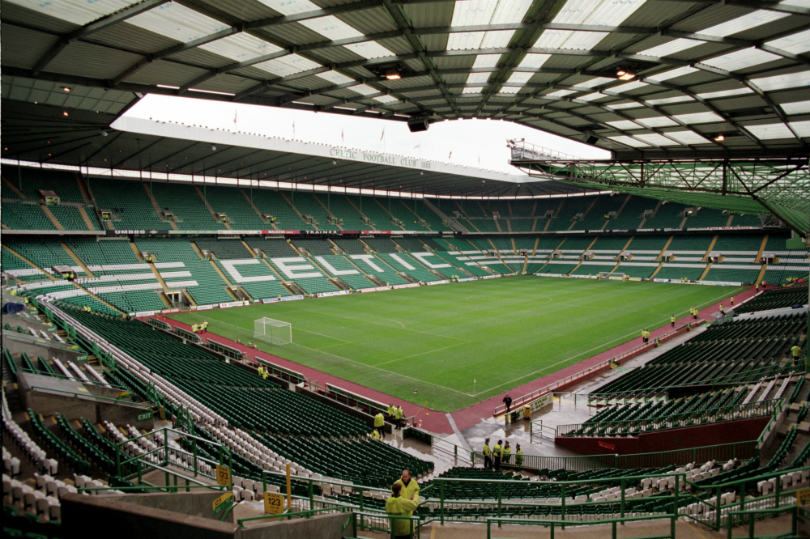
The songs provide much of the unique atmosphere at a Glasgow derby but, according to Celtic fan Tony Murray, there are limits: “I don’t like Celtic adopting any of those Rangers songs. Even when we were doing well against Porto in the Champions League there were guys in the crowd singing about Dick Advocaat: ‘Are you watching Orange scum?’ All that stuff was started by Rangers.
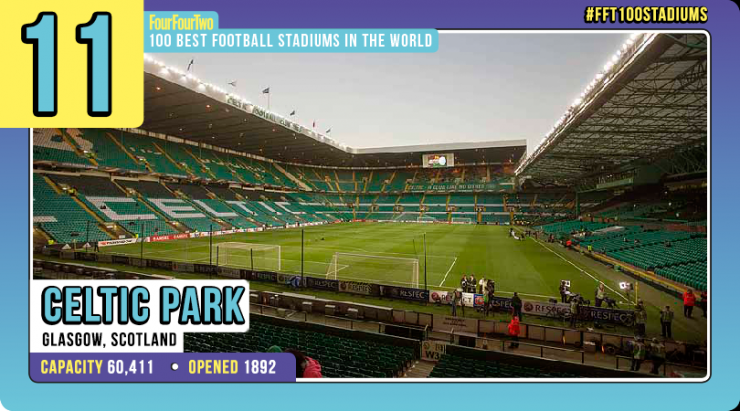
"For years Celtic fans have been able to laugh at ourselves during the bad times when we sang Always Look On The Bright Side of Life. Try to get a good atmosphere, not a poisonous one.”
When you look at the blurred faces just at the edge of camera focus as a Celtic or Rangers player takes a throw-in or a free-kick near the touchline it’s hard not to despair. The faces contorted with rage, the masturbatory gestures, the V-signs, the shaken fists, frequently from depressingly young supporters.
Yet there is still some hope, according to Cara Henderson. The very fact that the subject is being discussed in public is some slight cause for celebration.
“Celtic and Rangers have been broadly supportive of our efforts, but I do believe they should be more proactive,” she says. “They need to engage in a debate with their fans about what it means to support their clubs and define it in a positive sense, thereby dissociating themselves from the sectarian elements that attach themselves to both clubs.
They need to say which songs are acceptable and which are not. They need to ban fans who insist on singing sectarian songs and shouting offensive sectarian chants
"The clubs need to be seen to be making clear and repeated statements that they are opposed to sectarianism and that fans who indulge in such behaviour embarrass the clubs. They need to come out and say which songs are acceptable and which are not.
"They need to ban fans who insist on singing sectarian songs and shouting offensive sectarian chants and they need to publicise the numbers of fans that are banned for this offence. That way fans will know that their season tickets are at risk if they indulge in sectarian behaviour.
“I would also like to see the SFA condemning sectarianism in Scottish football. Compare the Italian FA’s punishment of Lazio for their fans’ racist behaviour and ask why nothing similar has been done in Scotland.”
NEXT: There is no comparison
No comparison
Alastair Robertson who takes his teenage daughter to Ibrox sums it up rather neatly. “The best Old Firm game I have ever been to was the Auld Old Firm match,” he says of a game which drew a full house to Ibrox at New Year even though it was basically an Old Crocks match.
Both sides wanted to win, but there was no hatred, no venom. Tommy Burns came over to our comer and there was a lot of banter and joking but no malice
“That was for charity. Both sides wanted to win, but there was no hatred, no venom. Tommy Burns came over to our comer and there was a lot of banter and joking but no malice. That was the most enjoyable Old Firm match I’ve ever been to.”
Sadly, even the Auld Firm cannot continue. A row over how much of the gate was going to charity and how much was being retained by organisers has meant that other hand-raising ventures have been cancelled.
For Sandy Jardine only a Scotland-England game can match the Old Firm, and for exactly the same reasons. “It’s the passion of two sets of supporters which bounces off one another,” he says. “That’s what makes the game mean so much to so many people.”
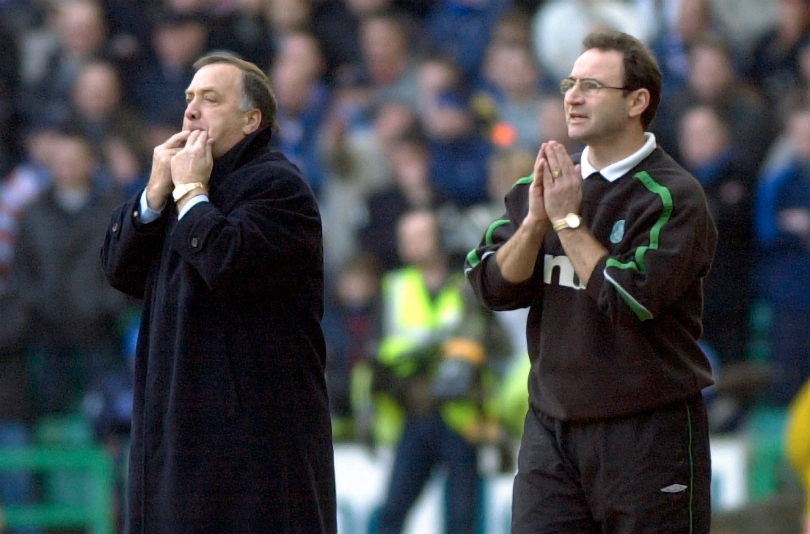
Even overseas there is little to compare. “The fixture between Dortmund and Schalke was very competitive and it was similar for the fans,” says Murdo McLeod, who left Celtic and became a star with Borussia Dortmund.
“They had bigger crowds than the Old Firm. Schalke had 76,000 in the stadium when Dortmund came and we had a full house at 57,000 and every game was like that. So that was an intense rivalry, but not as intense because of the religious thing here in Scotland.”
National contest competed by internationals
That religious aspect of the Old Firm fixture now has little effect on what takes place on the field, if it ever did. Where once there were clashes between Irish Catholics in green-and-white hoops and staunch Scottish Protestants in light blue, now an Old Firm game is like the United Nations.
Rangers started the first Old Firm fixture of 2001-02 with one Scot in their line-up while Celtic had two; the remaining 19 players came from 15 different countries. That sort of dilution of nationalism, which really began at Ibrox when Graeme Souness signed players for talent rather than religious affiliation, has to have some effect.
“Since Graeme Souness broke a few barriers down,” says Murdo McLeod, “I think Rangers fans just want to see good players playing for their side. There are so many non-Protestants in the team but if they can play football that’s good enough for the fans.”
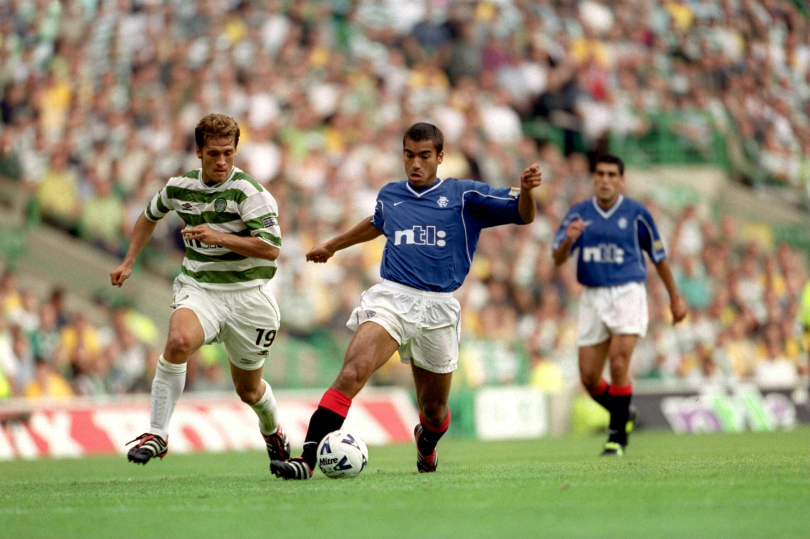
It will always be a wee bit more important to Scottish players but even the foreign ones, once they play in one, know the score
But don’t expect any decrease in intensity. Whether players come from Slovakia, Argentina, or Reunion Island, Sandy Jardine says it only takes a few minutes to discover what it’s all about.
“A lot of people go into the game for the first time thinking it’s just another big game. But once you’ve played in an Old Firm game, then you understand the passions and everything else which is involved. It will always be a wee bit more important to Scottish players but even the foreign ones, once they play in one, know the score.”
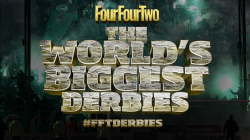
If Celtic and Rangers are to thrive then the fans will have to set aside the enmity of their fixture and go back to old-fashioned rivalry. For some that has already happened.
“I feel there is less hatred. We just want to win now,” says Tony Murray whose faith in a resurgent Celtic side under Martin O’Neill is almost palpable. “Celtic are going on to bigger and better things like the Champions League. Rangers are just another team to beat. Winning can make your week but it’s now a small local skirmish rather than the whole war."
This feature originally appeared in the December 2001 issue of FourFourTwo magazine. Subscribe!
